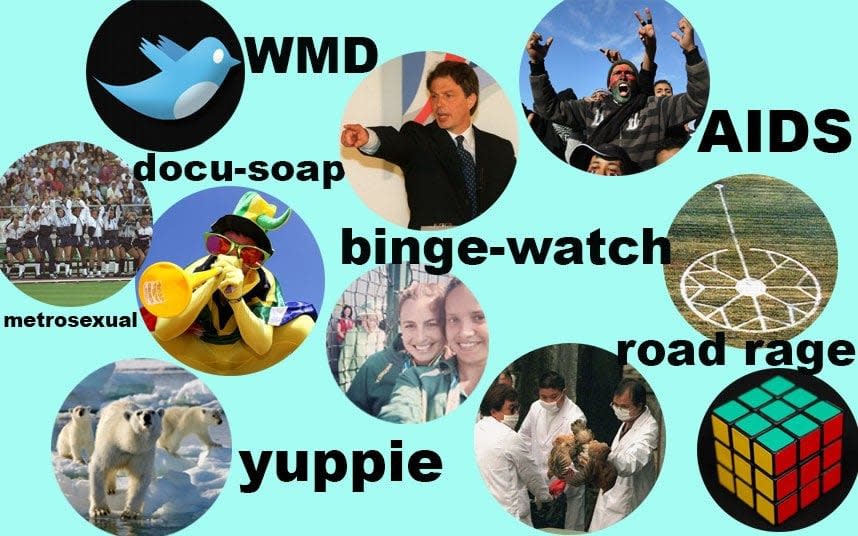From 'Fake News' to 'Rubik's Cube', take our quiz to match the word to the year it was coined

And so the giddy days of 2017 can best be encapsulated by ‘fake news’, which the Collins dictionary has announced as its new word of the year.
The use of the term defined as “false, often sensational, information disseminated under the guise of news reporting” has increased by 365 per cent over the past year, from Russian spambots to the US President's inauguration.
In the other new words added to the 2017 edition of the dictionary, “echo chamber, gig economy and fidget spinners” also make an entry. Which bearing in mind 2012 had the Higgs Boson shows you just how far civilisation has come.
Looking back over the decades at previous words of the year, some have been mere fleeting fancies: vuvuzelas in 2010, for example, or 2000’s economy-class syndrome.
Others have, in hindsight, proved generation defining: Aids in 1983; test-tube baby in 1978; information super highway in 1993 and WMD in 2004. Not to mention Rubik’s cubes and lager louts.
Take our quiz to match the word to the year it was invented. And separate the fake news from the words that really made a difference.

